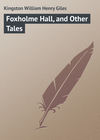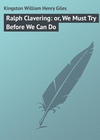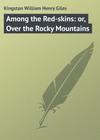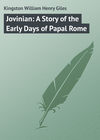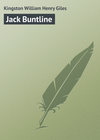Czytaj książkę: «The Circassian Chief: A Romance of Russia», strona 8
Volume One – Chapter Eleven
It was a dark and stormy night. The wind blew in violent and fitful gusts through the ill-lighted and irregular streets, now and then entirely extinguishing some of the few straggling lamps, while the remainder gave but a feeble and uncertain light, as the rain rushed down in torrents, making the road and pathway slippery with slime and mud.
The night had just closed in; yet, notwithstanding the inclemency and boisterousness of the weather, and the difficulties of the road, persons were still wandering abroad on various avocations, when a figure closely muffled in a large cloak, (apparently to shield himself from the tempest), issued from a side door of the palace of the Count Erintoff. He walked hastily along, keeping on the darker sides of the streets, as if to avoid recognition, and paused not till he reached the hotel where Ivan had taken up his abode. He remained concealed beneath the shelter of a porch, on the opposite side of the street, into which no gleam of light penetrated; though a lamp, burning in the doorway of the hotel, enabled him to command a distinct view of all who might enter, or depart. Thrusting his hand in his bosom, he thus muttered to himself:
“Ah! most trusty weapon, thou art not likely to fail me, if my arm proves true. Far better is the silent and sharp dagger to do such a deed, than the noisy and treacherous pistol, which has often failed a better man than myself, on a like occasion; yet, I did well to bring my noisy friend, in case, by any chance, the first should fail to strike home. – Ah! some one approaches.”
Groff, for it was he, drew farther back into the shade, to prevent himself from being seen by the stranger who was about to pass. At that moment, a person with a light and active step, completely shielded from the weather, walked quickly by, so that Groff could catch a glance of his features. He had not long to remain after this on his watch, when a figure appeared at the door of the hotel, whom he guessed must be his intended victim; for having cast a look at the dark and clouded sky, the person issued forth in the direction Groff expected him to take. The ruffian accordingly emerged from his hiding-place, and stealthily followed, at a short distance, the steps of his hoped for prey.
It was impossible to distinguish the figures of anybody, on such a night, wrapped up as all were who ventured abroad; but Groff felt that he could not be mistaken, both from seeing his intended victim issue from the hotel in which Ivan resided, and from the direction he was taking.
The person walked rapidly along, threading the intricate and obscure streets, without hesitation; every now and then, however, drawing his cloak closer around him, and casting a hurried look behind, as if to observe if he was followed. On these occasions, Groff contrived to shrink under the shade of some buttress, or projecting wall. Owing to his being perfectly well acquainted with the streets, and knowing each turning the person would probably take, he was enabled, successfully to dodge his footsteps, till he had arrived in the neighbourhood of the mansion previously described, in the garden of which the meetings of the conspirators were held. The man there stopped, and looked cautiously around, retracing his steps for a short distance, as if to assure himself that he had not been followed; throwing a scrutinising glance, as he lifted his hand to shade his eyes, down two or three narrow lanes, which there turned off from that along which he had passed. He seemed, however, satisfied, and was about to pass on.
“Now is my time,” thought Groff, who had hidden beneath a dark arch way, “I will now rush forward, and strike him, to make sure, and save myself a long and disagreeable watch; but he looks as if prepared for danger, and I may find a warmer reception than I wish, or he may cry out and give the alarm, before I have time to escape.”
While Groff was thus debating with himself, the person again walked on, unconscious of the danger he had so narrowly just escaped; and the assassin, fearful of being discovered after his evident wariness, if he pursued him further, concealed himself carefully under an arch, let into a wall, which had at one time served as an entrance to the garden behind it; but, for some reason, the inner part was now blocked up with stones, leaving, however, a recess sufficiently deep for a person to hide within it.
“Here I will await his return,” muttered Groff; “he has never yet failed to pass this way, and I have well marked his figure, so that I should know him if there was but a glimpse of light. I wish I had followed him to find out where he goes to, for there may be some secret worth knowing in that. It is an odd place for a person to come to so constantly, and I should make a fine thing of it, if I discovered any hidden plot, which the Count could reveal to the Emperor; it would bring him into high favour, and I, his follower, would benefit by it. I might easily manage to get rid of the youth in some other place, and if I slay him now, I lose my opportunity. But no! one scheme is but a chance, while his death will give me a certainty of reward.”
Having thus made up his mind, Groff remained in concealment for two or three hours, till he began almost to fear that his victim had escaped, by passing some other way. He watched with breathless expectation – anxiously looking forth from his place of shelter. The rain still fell in torrents, and flashes of lightning now and then darted from the heavens. One flash, brighter than the others, almost blinded him, as he grasped his dagger firmly in his hand; but he was no coward, though but a common ruffian, and he did not tremble. He again drew back, and listened attentively. Footsteps approached, he could not be mistaken; he heard the light and quick step advancing – nearer and nearer it came – he feared to breathe lest the sound might reach his victim’s ears – he more firmly clutched his dagger. With one foot advanced – his arm raised ready to strike, he stood pressing his body against the wall; he could distinguish the very breathing of him who was approaching. The figure filled the archway – the assassin sprang from his lair, his dagger’s point towards the breast of his victim. The lightning flashed brightly in forked streaks from the sky and played round the blue steel, but it failed to bring heaven’s vengeance, as it glanced before the eyes of the doomed one. He started back, but, alas, too late! the sharp point pierced his bosom. Too firmly was the assassin’s arm nerved; deep – deep, he drove his murderous weapon home; his whole force was in the thrust. Loud rolling peals of thunder reverberated through the heavens, as the work of blood was doing, and drowned the dying groan of the murdered man. Heavily he fell, struck down by the force of the blow. No sigh escaped his breast; but the foul midnight murderer was not content; drawing the reeking steel from the wound, his teeth grinding with fury, his eyes starting from his head, he plunged it again, and again, to the very hilt, into the bosom of the fallen man, the warm blood spouting from each fresh wound, and dyeing his hands. He stooped down, tearing aside the cloak and vest, seeking with eager haste, to feel the bosom of him whom he had slain, to find if perchance it yet palpitated with life; but well and truly had he done his work; a deep deadly wound had pierced that heart, which, but a few moments before, had beat with confidence – true patriotism – high hopes and aspirations; inflicted by his foul hand.
For a moment, a gleam of satisfaction passed through the murderer’s bosom that his work was accomplished, and his reward gained; but an instant afterwards, and oh! for ten thousand worlds would none have exchanged the most wretched poverty for the feelings which possessed him. It was his first cold, deliberate, mercenary shedding of blood; he felt himself to be an accursed wretch on the earth.
He could not fly, a fascination chained him to the spot; his fingers were clammy with blood, thick clotted to his dagger’s handle. He sought for a pool that he had stepped in near the spot; he tried to wash away the damning stains, but he knew that to be impossible.
In the exciting moment of the murder, he had been thoughtless of the blood which flowed over him, but he now observed that he was covered with it. The rain again fell in torrents, he stood exposed to its fury, to let it wash away the stain. It revived him; his thoughts again returned to their accustomed channel. The recollection of the money, for which he had done the deed, recurred to him; avarice seized his heart, and he remembered that, perchance, the murdered man might have gold about him.
He now neither trembled nor hesitated, as he felt about the body of his victim. With joy he clutched a purse, by the size and weight of which he knew it must contain gold; he felt in the breast, he drew from thence a packet of letters; a thought struck him that they might be of use to his master; he also possessed himself of watch and jewels. He was satisfied: no regret, no compunction for the deed oppressed him. His callous indifference had returned; an idea then occurred to him – horrid – diabolical. He searched around, to find some large stones, and with all his force he dashed one on the head of the murdered man; he seized another, and another, and hurled them with fury on the head of his victim, till he knew that every feature must be obliterated.
Again the lightning flashed brightly, and shewed him his work. He gazed on the ghastly spectacle; the thunder rolled terrifically, and seemed about to cast its bolts on his head. Even the assassin, callous and hardy as he was, now trembled, he could stand no more, and fled hastily from his cursed work. On – on – he went, nor dared to look behind him, for he felt himself pursued by some phantom of tremendous, of horrid aspect. There was a weight at his breast, his brain burned; he longed to shriek, to give vent to his feelings; but his voice seemed choked, he could utter no sound. He felt a longing desire to rush into fierce strife, to find more and more to slay, more to destroy. He was like the tiger who has once tasted of blood; nothing could slake his thirst; blood – blood he longed for, and still he fled away from that he had first spilled; but he thought he could blot out, with fresh blood, the remembrance of that dreadful deed.
He was flying on, a sort of brute instinct guiding his way, when he was called to his senses, by the loud challenge of a sentry from some government building. In a moment, he was again himself, the bold, careless ruffian; he answered calmly to the challenge, and was allowed to proceed onward; he drew his cloak closely around him, and walked towards the palace of his master, with a steady step; but it still required some exertion over his nerves, to prevent himself from rushing onward at his former pace.
At length he reached the palace, and knocked at a side door, where Kruntz was in waiting for him. His fellow ruffian started, as holding up a light, he caught sight of his pale, haggard cheek, his starting eye, and the dark red stains with which, as his cloak fell off, his dress was besmeared.
“What work hast thou been about now, Groff?” asked the man, “thou look’st like some wandering ghost.”
“A butcher’s!” answered Groff, in a thick husky voice; “but ask me no questions. Where is our lord? I must see him directly; I have matters of importance to communicate.”
“Would’st go to him in that pretty guise, friend?” said Kruntz; “truly it would please him much to see thee thus. Look at thyself in a glass, man, and thou would’st not much admire thine own countenance; if thou didst look always thus, thou would’st have but poor chance with the fair damsels thou seekest to captivate, and even men would be apt to shun thy company. I, for one, should not much like to be as near thee always as I now am. Get thee in, man, and change thy draggled garments.”
“Aye, I forgot me,” answered Groff. “Say not a word, Kruntz, nor rouse the other knaves. I’ll go change these wet garments, and then present me to our Lord; here, give me thy lamp.”
Thus saying, Groff seized the lamp from Kruntz’s hand, and turned the light away from himself. “Go, tell the Count, that I have returned and will give my news, when I am fit to appear before him.”
While Kruntz went to report the return of Groff, the assassin hastened to throw off his blood-stained garments, which he carefully tied up in a bundle, and hid them away together with his dagger; then having washed all stains from his cheeks and hands, he presented himself before the Count Erintoff.
He entered the room abruptly. “The deed is done which you required,” he said; “to-morrow morning the whole city will ring with it, and I may then claim my reward. I made sure work, and the youth will never more stand in your way.”
“Good,” answered the Count, “you shall have your reward. Come to-morrow to claim it.”
“It is well and hardly earned, let me say; and here is something that I found in the breast of the youth; these papers may give you some information,” said Groff.
“Let me have them,” said the Count. “Is this all you found upon him, knave, eh?”
“Nothing farther; I stayed not to search him,” answered the ruffian.
“Well, well, it matters not,” said the Count; “leave me, I will examine these papers.”
The murderer gladly withdrew from the presence of his instigator to crime, to join his companion, and to drown his conscience with wine; first examining and then carefully hiding the spoils he had taken from his victim.
The Count, when left alone, eagerly tore open the papers he had received, though he shuddered as on the outer packet, he caught sight of the stains of blood; the blood of the youth he had so heartlessly, so revengefully consigned to an early death; but all thoughts of remorse for the deed were forgotten, as he glanced his eye over the documents. Some were in cypher, but others he perused with the deepest interest. As he read, he exclaimed aloud: “Ah, this is a fortunate discovery! How many do I now hold in my power! Ah, and you too! The man I hate! I shall be amply revenged on him! My fortune is on the ascendant! By Heavens! this information is worth a princedom to me! Ay, and I will gain it too! I would have sacrificed a thousand lives to have gained it! My revenge satisfied, now for love! Ah, beautiful but haughty girl, your lover dead, you will now become mine; you will soon willingly come to my arms. Fortunately, that villain cannot read, nor has he even looked at these papers; I must not let him guess at their contents, or he may make higher demands on me. I trust he has not kept back any other papers; but no, he has given these as my share, and has kept the youth’s gold, if he had any, to himself: – he is welcome to it. But if I give information of this affair, may I not be suspected of the murder? However, that matters nothing; the government will be too well pleased to gain the information, to inquire very minutely how I came by it, or, if they should, I may easily invent a tale to account for it. I must see to this.”
Volume One – Chapter Twelve
We must now turn our view to a chamber in the chateau of the Baron Galetzoff. It was furnished with heavy and old fashioned hangings which gave it a solemn and sombre air, increased by the windows being closed to exclude the glare of day; one stream of light alone entering through the curtains, and throwing a still darker shade into the rest of the room. Two female attendants stood by the side of a couch, on which reclined, now wan and emaciated, that unhappy and mysterious lady, whom Ivan had so short a time before left in health, and all the majesty of beauty.
Her eye fixed and regardless of all around, her thoughts seemed to be far away, wandering perchance amid the scenes of her youth, with the loved beings of other days, whom she had long, long ago lost, but soon hoped again to meet in other and happier realms. As she gazed, their airy forms flitted before her eyes, and the well remembered lineaments became clear, and distinct, beckoning her to follow. She moved not, she spoke not, and as the attendants looked on her, they thought her spirit had departed.
A slow and gentle step approached: it was that of a venerable grey-headed man in the robes of a priest, whose clear, calm eye, and placid countenance, betokened an amiable and tender heart. He seated himself quietly by the side of the couch, but the movement roused the lady from her seeming trance, and she turned her eyes towards him.
“Daughter,” he said, “I could not rest away from your side, and as soon as I had performed the duties which called me hence, I returned to afford you all the consolation of which religion has so great a store.”
“Father!” she answered in a low voice, “to your instructions do I owe the great, the inestimable benefits which I may now partake of; else had I remained like the beast that perishes, without that faith and hope which now sustain me.”
“Daughter! those are the sentiments which should possess the bosoms of all who are about to leave this vale of tears,” continued the holy man; “clear your thoughts of all things appertaining to this world, and fix them on the next.”
“I would do so, Father, but I cannot!” answered the lady. “I must, ere I die, see one, the dearest to me on earth; till then I cannot tear my thoughts from him. Has he arrived? Oh! that I could see him, ere my spirit wings its flight from hence. Oh! let there be no delay when he comes, for each instant I feel the throbbing of my heart grow weaker.”
“There shall be no delay, my daughter! a faithful messenger has been sent to summon him; but, when I just now entered the house, he had not arrived,” said the priest. Scarcely had he uttered the words, when the lady exclaimed, “Ah, I now hear his horse’s steps approaching; oh! haste, Father, and bid him come hither.”
“You are mistaken, daughter, I heard no sound, and he could scarcely arrive by this hour,” answered the priest.
“Ah, no! Father, I mistake not, even now I hear his footstep in the hall. He approaches. Oh, my heart! cease not to beat, till I have seen him once again,” she exclaimed, nor had her sense of hearing deceived her; rendered still more acute, as her other faculties were fast failing.
In a few moments, a gentle knock was heard, and the dwarf entered. “I know that he is come,” said the lady, “oh! let me see him without delay; and holy Father, I would be alone with him.” The priest rose to obey her wishes, and withdrew with the attendants, as Ivan entered.
As she saw him, her faded eye brightened; and she stretched out her arms to receive him, as throwing himself on his knees by the side of the couch, he shaded his face with his hands, and a convulsive sob escaped his bosom.
“Do I find you thus?” he exclaimed after a moment’s pause, “my friend – my kind protectress? why was I not before apprised of your illness? why was I not here to solace and comfort you?”
“I knew not that death was making such rapid strides towards me,” answered the lady; “but think not that I am unhappy. Now that I have you with me, loved one! I am content to bear my lot; but I must not waste these precious moments, for I have much to say and my time on earth will quickly end. Listen to me,” and she spoke in that language which she had taught Ivan in his youth, and in which they loved to commune together.
“Can you remember the early days of your youth, and those scenes of which I once forbade you to speak?” she said.
“Yes – yes – vividly can I now recall several to my mind,” answered Ivan. “I remember a strange land, and scenes far different to this country; and also your kindness, your love from my earliest days.”
“Think you that the affection and fond solicitude with which I tended your youth, could ever have been felt by any but a mother! None but a mother could feel the undying love which I bear for you. My boy! my child! come to my arms, and let me hold thee there, before I die. You are – you are my son, and though in life, I dared not, for your sake, acknowledge it, I rejoice to die, that now I may declare the truth before all the world.”
“My heart always told me so,” exclaimed the young man, fondly embracing her, as she held out her arms to receive him. “O my loved mother! would that I might thus have called you before! but say who is my father? Is it not the Baron?”
“Thank great Heaven! no, my loved son – no! Your father was noble, generous, and brave; methinks, I now see his noble countenance reflected in my boy; but my strength fails me, my voice grows weak. Listen, ere it be too late, to my story.
“It was in our own loved and beautiful land, amid the magnificent mountains, the green and fertile glens of Circassia, that your father was distinguished as one of the noblest and bravest chieftains. Five thousand daring horsemen assembled at his command, ready to follow wherever he should lead. Many of the neighbouring chiefs were subject to him; all honoured or feared him. He kept free from the feuds which distracted and weakened the other tribes, and all sought to be in amity with him. He had numerous flocks and herds, which fed on the richest pastures; he had abundance of wealth; fleet and hardy steeds; rich armour and apparel; faithful and devoted servants.
“I was the daughter of a neighbouring prince; your noble father sought and won me in marriage. We had two children, you my loved son, and a fair young daughter; how my heart has bled as I have thought of that lovely cherub, whom I have been destined to see no more, and whose fate I tremble to think of! But our happiness, which seemed as full as mortals could enjoy, was destined to be fleeting and transitory; we were awoke, suddenly and without preparation, from our short-lived dream of bliss.
“Our territories, which extended over many of the rocky and precipitous mountains bordering on the sea, had hitherto, on account of their lofty situation, almost inaccessible to attack, escaped the devastating visits of the invaders of our country. Our home was near, the coast, and your father, confiding in the security of our situation, had gone with the greater part of his followers to repel a distant inroad of the enemy, leaving only a few to protect our herds, when a fleet of the lofty ships of the Russians, made a sudden descent on our coast. Their troops landed in numbers, and stormed the passes leading to our dwellings, destroying the fields of corn on their road, and carrying off, or killing all the cattle they could seize; the few of our men remaining in the neighbourhood assembled in haste, and disputed each spot of ground practicable of defence, with all the energy and bravery of despair; even the women seized arms and joined the men, aiding them to their utmost; some hurling down stones on the heads of the invaders, as they defiled through each narrow gorge. But what could a handful of men do, taken almost by surprise, against a host of well-equipped and ferocious enemies? Frantic with our hopeless efforts, we fought till our men were all slain, for none would yield, while they had strength to use their weapons.
“My heart sickens even now at the wanton and cruel butcheries which the ruthless barbarians committed. The children were torn from their mothers’ arms and slaughtered in their sight; some few of the women however escaped with the infants under their charge, among whom was your young sister, and gained the mountains, beyond the reach of their pursuers.
“A ruffian was about to destroy you, my boy, when you were rescued from his grasp by a more humane comrade, who, as I afterwards found, was a servant belonging to the leader of the enemy’s forces. From a height overlooking the pass, I beheld you borne away in the arms of the soldier, and I sought to throw myself down, to tear you from the robber’s grasp, or to share your captivity. I was, however, forcibly prevented by my attendants, who deaf to my entreaties and disobedient to my commands, when I ordered them to release me, compelled me to remain concealed in a cavern from the sight of our enemies. The Russians had retired from the defiles and passes in the mountains and encamped near the seashore, under protection of the guns of then ships; we, the wretched and melancholy few who remained, watched from the neighbouring heights, there passing the live-long night, for we had no homes to return to; our once smiling dwellings were burnt to the ground, our streams choked with the dead, and tinged with their blood, our cattle carried off, and desolation reigned around.
“We were aroused from our lamentations over the fallen brave, by the arrival of a band of horsemen, who had been sent back by your father; they proposed to delay making any attack on the foe till their numbers could be increased from the neighbouring villages; but I thought of you, my boy – you a prisoner in the hands of our enemies, and I dreaded lest they should set sail, and bear you far away without a hope of recovering you. With lamentations and entreaties, with tears and commands, I urged on our men to the attack. I shewed them the ignominy, the disgrace, which would cover them, should they allow an enemy, who had devastated their lands, slain their kinsmen, and carried away captive their wives and children, to escape, without attempting to revenge their loss. I pointed out to them that the son of their beloved chieftain was in the power of their enemies, and that should they discover the value of their prize, they would endeavour to bring us to terms, disgraceful and injurious to our country, for the sake of recovering him. I excited their valour – I fired their souls with my eloquence, wrought to the highest pitch by a mother’s anxiety – I offered to lead them, putting myself at their head, and swore never to return unsuccessful.
“We sent out messengers in all directions around, summoning all who could be collected to join our forces. None hesitated to obey our summons, for the same detestation of our invaders animated the breasts of all. Before the morning broke, we had assembled from all quarters an irregular, but heroic band, eager to be led against the common foe. From the thick wooded heights, which overhung the coast, we rushed down upon the unprepared camp, like some mountain torrent, suddenly swelled by the thunder cloud, sweeping over the plain, bearing all before it. I felt not like a weak, timid woman, but as the enraged lioness, whose young has been torn from her by the hands of the huntsmen. I sprung to rescue you; by word and action, I encouraged our men to the assault, and heeded not the overwhelming numbers opposed to us.
“The Russians roused from their sleep, ere the out-posts could give the alarm, rushed to their arms; many, owing to the confusion and darkness, missed their weapons. In an instant we were upon them; and as corn before the sickle we hewed them down, none crying for mercy; they knew they deserved it not, we shewed none. But ere our work was done, the morning broke, and exhibited our scanty force to the enemy, who rallied at the sight, and retreated fighting in order. But I had not recovered my child, and it was for that object alone that I fought. Suddenly, I caught sight of you at a distance, with other prisoners amid the ranks of the foe. I strained every nerve to reach you – I saw not the blows aimed at me – I encouraged my followers, and on – on, we rushed, fearless of the danger, and ignorant of the vast power of the mighty engines of destruction which their huge ships bore. Fighting step by step, we repelled the Russians, till they gained the very margin of the sea, and then, just as we thought victory secure – their ships opened upon us suddenly the hot shower of their artillery, which no valour could withstand; my brave companions fell fast around me while fighting, and still hotly pursuing the foe, till death arrested their course.
“Scarcely any remained by my side, when it seemed that a sickness came over me, and I fell to the ground, and knew not what further happened.
“When I awoke to consciousness, I found myself on board of one of the Russian ships, borne far from my native land. I endeavoured to recall my scattered senses: a fever raged through my brain, as I was conducted into the presence of the chief who had led the attack on our territory – he was the Baron Galetzoff!”
Ivan’s brow grew dark, and an exclamation of anger rose to his lips; but he restrained his passion.
“He eyed me with a glance which pierced me through my soul, as I stood with my head bowed before him, nor could words find utterance through my parched lips. He spoke, but I was deaf to the sound. Strange people were around me; an uncouth language was spoken, whose meaning I could not understand: entreaty, resistance, complaint, were alike unavailing. I had none to appeal to from whom I could hope for assistance. I knew myself to be utterly helpless; none around me could understand my words. I was led back, unresistingly, to my solitary cabin. I yielded to my fate, for all thoughts of escape were hopeless. I thought of death as a refuge for my wretchedness; but one idea, one hope still sustained me, and bade me cling to life. I might, should you have escaped destruction, still have a chance, though a remote one, of meeting with you. The very thought restored me. I determined to live to devote my energies to find you; for I knew not of the difficulties in my way. The ship in which I was borne captive from Circassia, reached the shores of Russia; and I was transported to this mansion in some strange conveyance, which I had never before seen. I was here treated with every care and attention, having female attendants to wait on me, and to supply all my wants. From them I learned gradually the strange language they spoke, being inspired with the hope that it might be of service to me in my search after you; and sustained by this deep feeling, I became partially reconciled to my fate. I had not seen or heard of my captor since I left the ship, except that, as far as I could understand, he was still absent from his domain.












